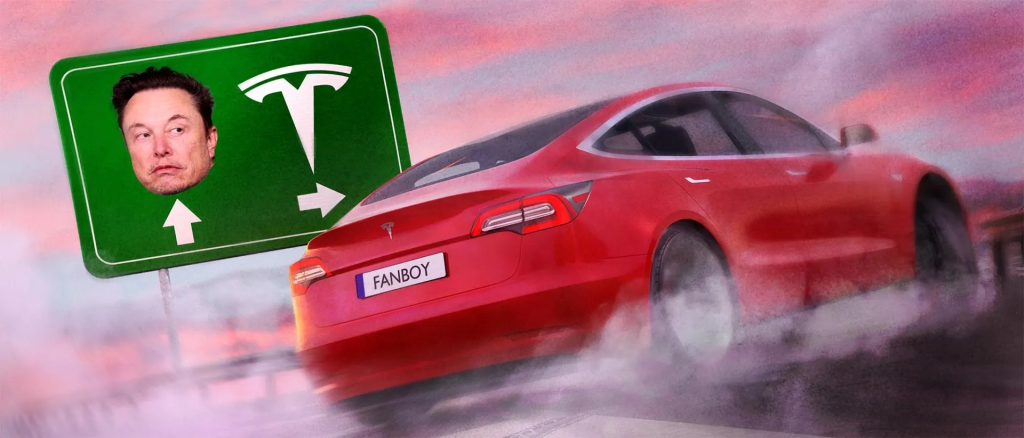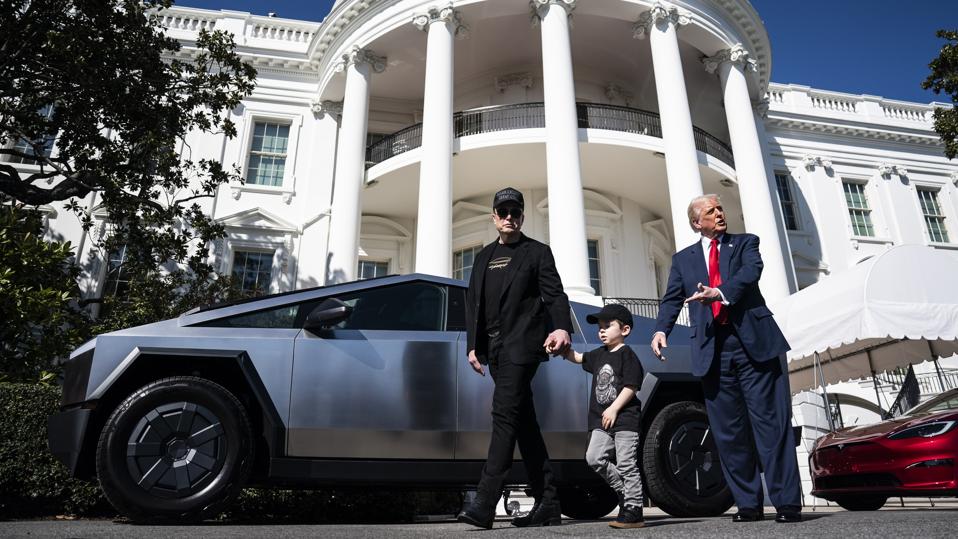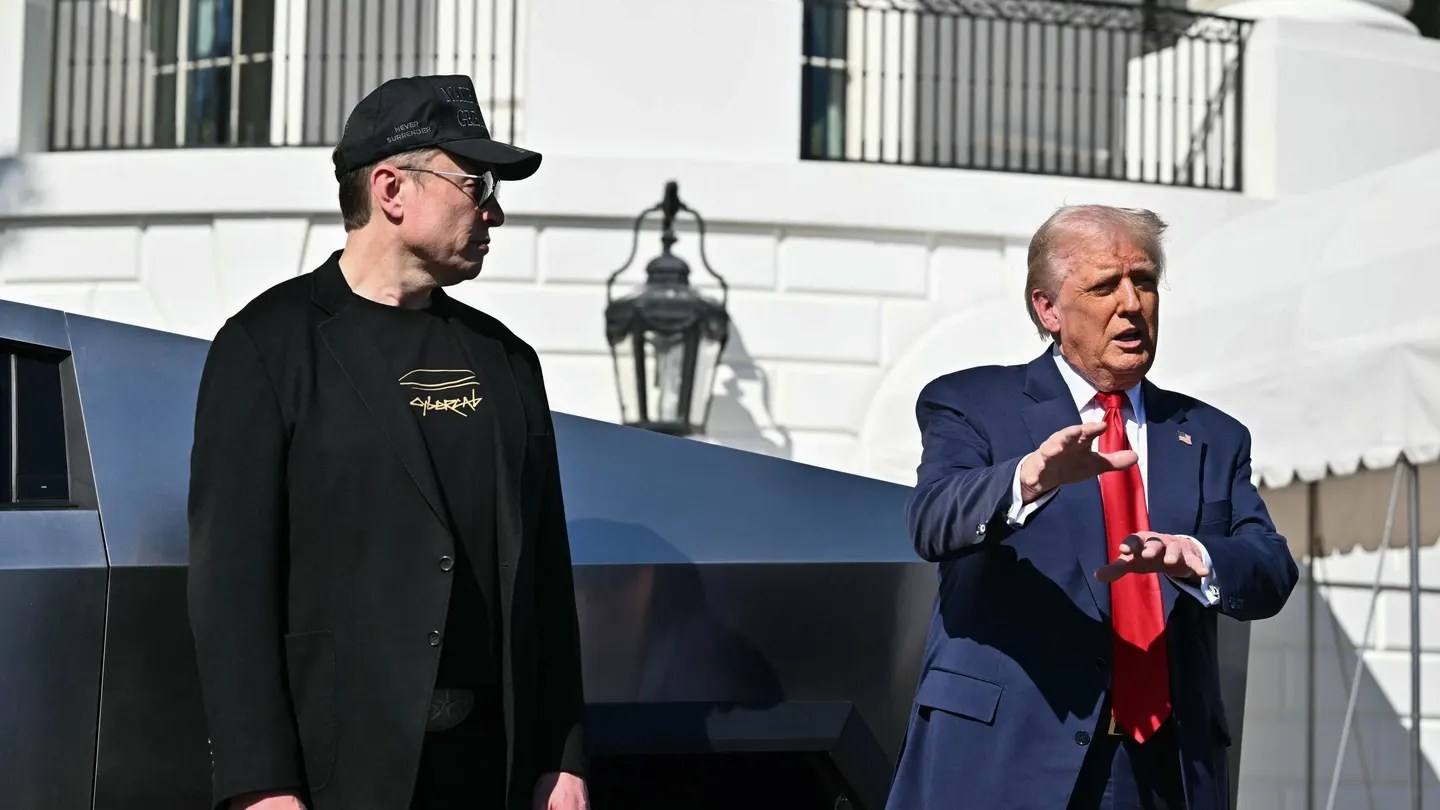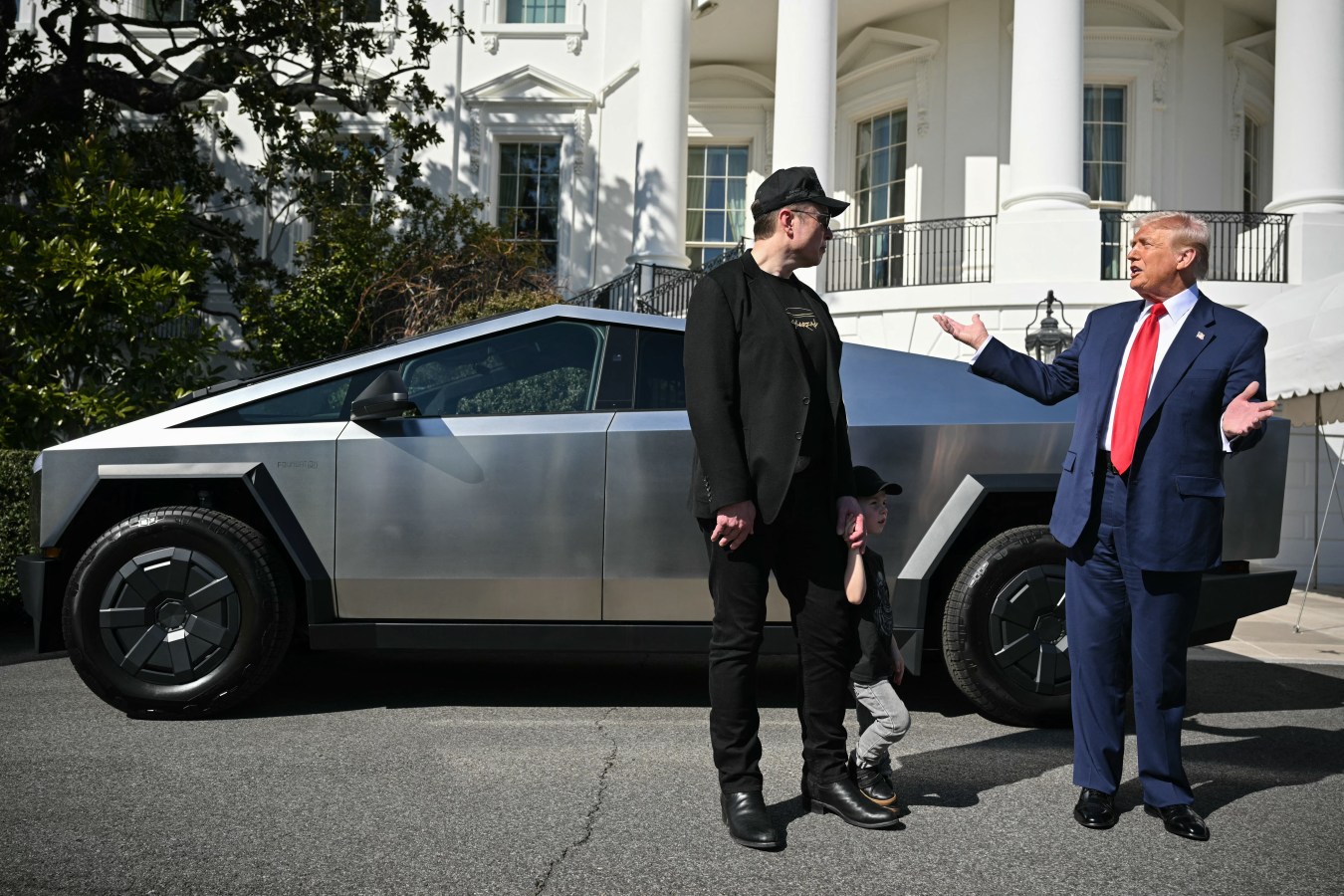Ahead of a shareholder vote on restoring the billionaire entrepreneur’s $50 billion stock award, Musk faces strident resistance from previously reliable sources who now question his commitment to the electric vehicle company.

For years, Elon Musk had no greater fan than Tesla investor Ross Gerber. When he mocked the SEC on Twitter a few years ago, Gerber asked him to vent to him privately because “you’re just helping the enemy.” When Tesla’s board asked shareholders in 2018 to award Musk with stock potentially worth tens of billions of dollars, Gerber backed it, because “true shareholders are all in on Elon.”
But after a year in which Musk has made increasingly controversial comments and fixated on newer endeavors, like X/Twitter and his artificial intelligence startup xAI, Gerber has had enough. The CEO of Los Angeles-based wealth manager Gerber Kawasaki has suddenly become a strident and outspoken critic of the entrepreneur he’s long admired. And with a looming shareholder vote to restore a pay package for Tesla’s CEO worth around $50 billion, he’ll be voting no — the first time he’s so publicly opposed one of the Tesla board’s recommendations.
“When I voted for the package in 2018, that was based off information I had at the time and the fact that Elon worked at Tesla full time,” Gerber told Forbes. “Now my reluctance to vote for it has to do with new factors, the most important being that he doesn’t work at Tesla anymore. He works for xAI and he works for X. Tesla is not his priority.”
Gerber isn’t the only Tesla fan to have turned on Musk after years of devotion. Singapore-based Leo Koguan, who once described Musk as “the only person I really respect on Earth” and claims to be Tesla’s biggest retail shareholder, also voted against the board’s proposal to restore stock awards Musk was stripped of by a Delaware judge in January. “I’ve discovered Tesla has one shareholder, a one-person board and one tyrant CEO,” Koguan told Forbes. “The priority is he should work and do his job as CEO of Tesla.”
“I’ve discovered Tesla has one shareholder, a one-person board and one tyrant CEO”
Investor Leo Koguan
Musk has repeatedly pushed back on accusations he’s not focused enough on Tesla, even as the number of other companies he’s running has grown to include SpaceX, Boring Co., Neuralink, X and xAi. “I work pretty much every day of the week. It’s rare for me to take a Sunday afternoon off,” he said in a recent earnings call. “I’m going to make sure Tesla is quite prosperous. It is prosperous and it will be very much so in the future.”
More staid institutional investors have also been spooked by Musk’s antics and voted against the compensation proposal, including Norway’s $1.7 trillion sovereign wealth fund, Amalgamated Bank, the California Public Employees’ Retirement System (CalPERS), New York City Comptroller and Nordea Asset Management, as well as advisory firms Institutional Shareholder Services and Glass Lewis.
Along with the billionaire’s pay, the June 13 annual shareholder meeting will also put to a vote Musk’s plans to reincorporate Tesla in Texas from Delaware – where he’d moved the company to avail himself of the state’s lighter approach to business regulation – and new board terms for people close to him: his brother Kimbal and James Murdoch.
Musk and bullish equity analysts like Wedbush’s Dan Ives and Morgan Stanley’s Adam Jonas expect the compensation vote to come out in his favor, based on shareholder surveys. “So far, roughly 90% of retail shareholders who have voted have voted in favor” of the resolution, Musk tweeted on June 8. “The public sentiment is unequivocally supportive.”
Gerber isn’t so sure. Musk, who owns 13% of the company, “can’t vote his shares, so if you take that out, it comes down to the institutional shareholders, who are being advised to vote against it,” he said. “I’m kind of looking at the outcome as a coin flip right now.”
“There’s a real sadness and disappointment that Elon really doesn’t care about Tesla anymore”
Ross Gerber
That the outcome isn’t a foregone conclusion suggests something of a reckoning for Musk, who has fallen in public esteem from a widely praised serial entrepreneur and cleantech visionary to a pugnacious and erratic billionaire who seems unconcerned with offending current and potential Tesla customers, regulators and even presidents, seemingly spending more time on X posting to his 187 million followers than strategizing with engineers on new models and features. The result: inflammatory tweets that are antisemitic, racist, and anti-trans and high-profile misfires like Tesla’s bulky Cybertruck. None of that helps the company’s brand as EV market competition grows more fierce.
“I think across the board among all Tesla owners and shareholders, there’s a real sadness and disappointment that Elon really doesn’t care about Tesla anymore,” Gerber said.
Tesla fell 2% to $173.79 on Monday and have declined nearly 30% this year.
Unclear Future
Year after year, votes on shareholder proposals at Tesla’s annual meetings have been rubber stamp affairs: initiatives the board recommended were approved; those it opposed, such as better disclosure on child labor, discrimination and environmental impacts of its global operations and sourcing, failed. But the pay vote takes place at a time when the future for the leading electric vehicle company looks less certain than it did even a year ago – and as concerns over Musk’s focus and business judgment grow.
Tesla’s business in China, which fueled consistent profitability starting in 2020, is cooling and it posted dismal first-quarter results in April, with net income down 55% and a drop in sales that exceeded consensus expectations. Shortly after that, Musk shocked the markets with news that he’d inexplicably sacked most members of Tesla’s Supercharger team, a revenue bright spot as more automakers pay the company to access its extensive EV charging network. Subsequently, many members of the team were rehired, according to media reports, but the company has also faced an exodus of key leaders: Senior Vice President Drew Baglino, public policy and business development chief Rohan Patel and Rebecca Tinucci, who led the Supercharger team.

Tesla electric vehicles charge beneath solar panels at a Tesla Supercharger location in Santa Monica, California.
AFP via Getty Images
Musk has also stopped talking about some of his long-stated goals. During Tesla’s earnings call in April, he didn’t mention his target of Tesla selling 20 million EVs globally by the end of the decade, and didn’t provide details for lower-cost electric models the market has been waiting for since he first promised them in 2006. That’s a critical issue as they’re needed to fend off increasingly tough competition from rivals like China’s BYD, which already sells EVs that are much cheaper than Tesla’s Model 3 sedan and Model Y crossover.
Instead, Musk pivoted to promoting Tesla as an AI company, talking up dramatic plans for robotaxi business and humanoid robots. But neither is likely to generate significant revenue for years, assuming the company can turn them into commercial realities. His intense embrace of AI, with xAI just raising $6 billion, also marks another flip-flop given his dire warnings about its rise starting a decade ago.
After Musk bought Twitter, his stake in Tesla shrank significantly because he sold billions of dollars in stock to fund the purchase. Earlier this year, he began arguing he deserves a bigger ownership stake in Tesla because he was concerned about a takeover by “dubious” interests. “I am uncomfortable growing Tesla to be a leader in AI and robotics without having 25% voting control,” he said on X.
Those dubious interests appear to include some of his formerly staunch supporters who now see such statements as evidence that Musk no longer prioritizes Tesla and has “conflicts of interest,” Koguan told Forbes. For instance, CNBC recently reported that Musk asked Nvidia to divert a shipment of highly in-demand H100 AI chips from Tesla to xAi and X.
“He extorted publicly for 25% of Tesla,” Koguan said. Shareholders that approve his stock compensation “would donate more shares to his already unfathomable deep pocket.”
Company Chair Robyn Denholm is working to rally investor support for Musk’s compensation package, based on Tesla hitting various market cap and financial targets laid out in 2018, arguing that boosting his stake will help keep him motivated to prioritize the company. “The ratification of the pay package is really about fairness – fairness to our CEO,” she told CNBC last week.
Her argument has been persuasive to investors, including billionaire Ron Baron, who came out in favor of the compensation plan last week. “Without his relentless drive and uncompromising standards, there would be no Tesla,” he said in an open letter.
There’s certainly evidence that Musk’s drive was uniquely responsible for the company’s success. But his increasingly controversial behavior also appears to be hurting it. The EV company’s brand image tumbled dramatically in a recent Axios Harris 100 poll of America’s most visible companies. Tesla dropped to 63 in the survey, down from a high of eighth place in 2021. Gerber thinks things may only get worse.
“The performance of the company has been so poor since he bought Twitter,” he said. “There seems to be a denial from everybody around Elon of the fact that this has affected Tesla sales – and that his antisemitic, racist belief system is harmful to Tesla’s brand.”
“It’s like everybody there just lives in a fantasy that somehow this is all going to be okay because the magic man will come and invent some robots that will save Tesla.”
This article was first published on forbes.com and all figures are in USD.


